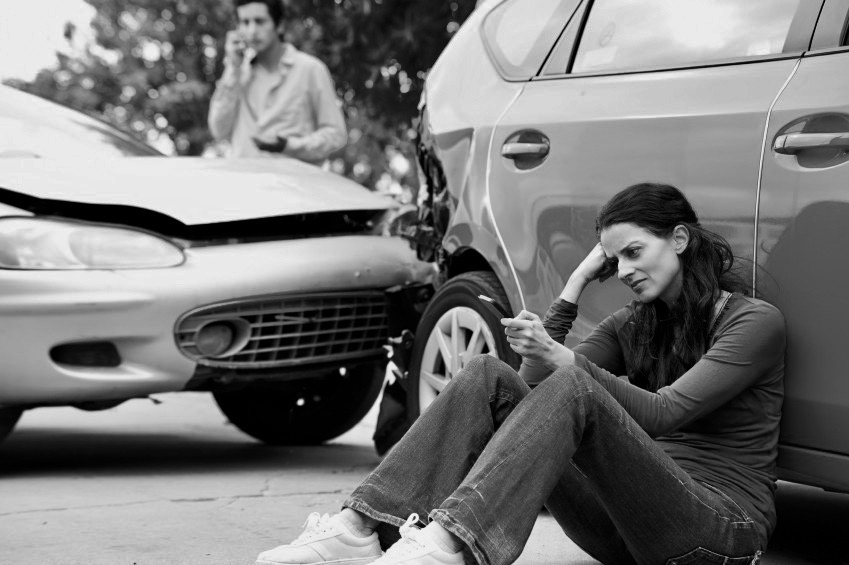Inside this section
What is collision insurance?
When you get into an auto accident, collision insurance helps cover the costs to repair or replace your vehicle, minus your deductible.
Collision is often required as a condition for a loan or a lease agreement. However, if you own the vehicle outright, this coverage is optional.
What does collision insurance cover? What does it not cover?
Collision insurance can cover the costs of repairing your car when it gets damaged in a car accident. If the damage to the car exceeds the value, standard collision coverage will only cover the actual cash value of the car based on market research. Here are some situations that are covered by collision insurance:
- When you get into a car accident with another vehicle—even if you were found at fault for causing the crash.
- When your car is damaged after colliding with a stationary object, such as a cement barrier, a tree or a stoplight.
- When your car is damaged in some other accident while you’re on the road, either as a result of a rollover crash or from tipping or falling.
Collision coverage applies only to vehicle damage, not to things like:
- Medical bills and lost wages (yours, a passenger's or another driver's).
- Damage to another person’s vehicle or property. (That should be covered by your liability policy.)
- Damage caused by hitting an animal that ran into the road, or damage caused by a weather event, such as hail, flooding or strong winds. (This would be covered by your comprehensive coverage.)
Collision Car Insurance Versus Comprehensive - What’s the Difference? View Here.
How do you choose a deductible for collision?
When you purchase collision coverage, you’ll have options to choose the amount of your deductible. This is your out-of-pocket cost in the event of a collision loss.
So how does a deductible work? Let’s say you opt for a $1,000 deductible. Then you get into an accident, and the damage comes to $2,500. The insurance company would reimburse you for $1,500, while you would be on the hook for the remaining $1,000 (your deductible amount).
Many people choose a higher deductible, so they can save money on their premium. A driver taking a $1,000 deductible veComprehensiversus $250 is shouldering more risk. So choosing a deductible may be a balance between your comfort with risk and your budget.
When you’re choosing to purchase collision coverage, calculate the year-to-year savings compared to the cost of the deductible. If the three-year savings is less than the cost of the higher deductible, it may be more worth your while to opt for the lower deductible.
But there are certainly other things to consider when choosing a deductible for your collision insurance. Your ability to pay is one. Also, consider the value of your car.
How does collision coverage compare to comprehensive?
If you want collision coverage, most insurance companies also require you to have comprehensive coverage. This is often referred to as full coverage.
Both give you coverage when damage occurs to the vehicle, but it comes down to how the damage occurred.
To simplify, collision insurance covers car accidents—things that happen while you’re driving and in control of the vehicle. Comprehensive insurance coverage tends to cover situations that were out of your control.
Comprehensive insurance covers damages caused by:
- weather events, such as tornadoes, flooding and hail
- falling objects, such as a tree limb snapping off and falling on your car
- vandalism
- fire
- animals
Collision covers car accidents, specifically when the accident was caused by you. In fact, if you caused an accident, your liability insurance could pay for the other car’s damages.
However, even if the crash was caused by another driver, your collision policy may also give you additional protection, so you can get back on the road.
Do I need collision coverage on an old car?
Maybe your car loan is finally paid off, and you’re no longer required to have full coverage on your car. Or maybe your car is close to a decade old and you’re reading a lot of financial advice columns telling you that dropping collision is a great way to make more room in your budget.
The truth is, the question around the right time to drop coverage is not an easy question to answer. It depends on your car and your circumstances. Here are a few questions you can ask yourself.
- How much money do you have on hand? If you had an accident tomorrow, could you come up with the funds to repair or replace your car? Here’s one thing to consider. More than 6 percent of people who have collision coverage file a claim, and the average claim amounts to $3,435, according to a study by the National Association of Insurance Commissioners published on the Insurance Information Institute website. Can you afford to pay nearly $3,500 out of pocket?
- How much is your car worth? Some will tell you to rely on the age of the car. But it wasn't that long ago when most people thought about replacing cars when they reached the 10-year mark and racked up more than 100,000 miles. These days, many makes and models can outlast those old benchmarks. That means your 10-year-old car may have retained significant residual value.
- How much does full coverage cost? Take the cost of annual coverage, and weigh that against your deductible and your car’s value. At a certain point, you may find there’s not much financial benefit to paying the additional costs of full coverage, and then, it may be time to consider removing collision coverage from your policy.
If you have additional questions or want to talk this through, contact a local Assure agent. They will be able to walk you through specific auto policy details and make sure yours is tailored specifically to you.
____________________________________________________________________________________________
Call our corporate office at (304) 723-4600 or contact us at any of our locations in Weirton, Wellsburg and Chester in West Virginia; Steubenville, Ohio; Louisville, Kentucky; or Pittsburgh, Pennsylvania.


